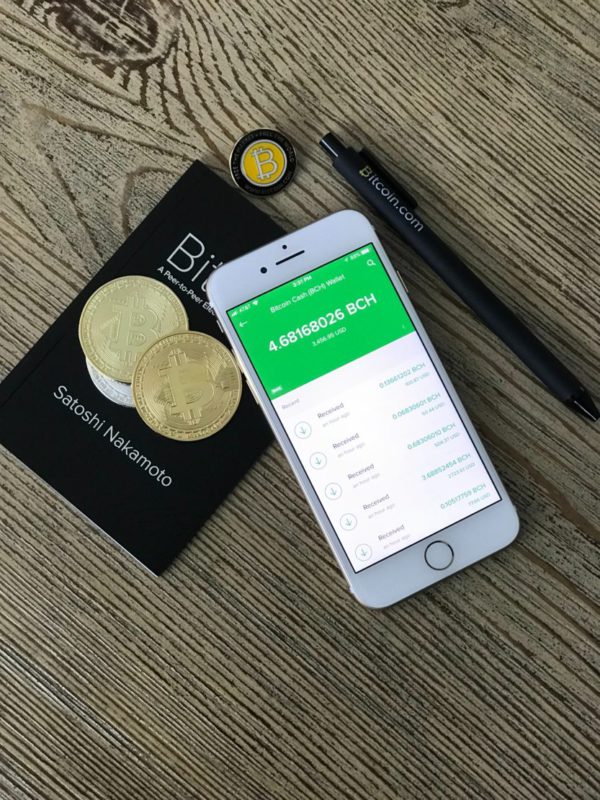Top 5 Questions Answered About Government Tracking Bitcoin
Governments must carefully consider the advantages and disadvantages of ownership of bitcoin. How to track it and many more such issues. These are the few questions that frequently asked about government tracking bitcoin and other crypto activities.
-
Is the ownership of Bitcoin known to the government?
Blockchain technology is the foundation of cryptocurrencies like Bitcoin (BTC). Transparency, which allows anybody, including the government, to see all cryptocurrency transactions made using that blockchain, is a basic feature of blockchain technology.
The transparency of blockchain technology allows for public access to Bitcoin transactions. Additionally, since the history of Bitcoin transactions is permanently recorded on the blockchain, it is simple to track BTC transactions. Thus, law enforcement agencies within the government may keep an eye on what transpires on the Bitcoin network.
Whether a person’s transaction activity on the Bitcoin blockchain can be connected to their identification will determine how easily BTC transactions can be tracked. So, is it possible for law enforcement, the FBI, and the Internal Revenue Service (IRS) to track down Bitcoin owners? And do authorities know which Bitcoins belong to whom?
Any Bitcoin wallet address’s cryptocurrency transactions are visible to everyone. Authorities gain knowledge of what is occurring and when in this way. Authorities can examine the BTC addresses used for transactions to determine where the Bitcoin is coming from and going.
Many Bitcoin users eventually reveal their identities (for instance, on centralized exchanges or through interactions with known wallets). The government can track Bitcoin ownership whenever (a series of) Bitcoin transactions can be connected to one’s identity. Hence BTC transactions are not always completely anonymous. With this new information, governments can enforce obligations like Bitcoin or cryptocurrency tax responsibilities or illegal combat activity like money laundering.
-
How does the government track Bitcoin?
Although the blockchain technology behind bitcoin is, in theory, anonymous, it may also be traced. Thus, Bitcoin might be referred to as “pseudo-anonymous.” To assist them with BTCtracking and identification verification, government organizations are recruiting bitcoin experts.
How can law enforcement, the IRS, or the FBI follow Bitcoin in real life? Enforcers can try to monitor the blockchain and examine BTC movements and accompanying patterns because they might not be able to immediately identify the persons involved in a Bitcoin transaction. They want to profile, de-anonymize and identify person trading in this way.
Therefore, why would governments act in such a manner, and with whom do they work? It’s important to note that most Bitcoin transactions are not connected to illegal behavior. However, law enforcement agencies like the police or FBI continue to work to apprehend individuals or groups that use cryptocurrencies like Bitcoin for illegal activities like fraud or money laundering. Similarly, an organization like the IRS would like to follow BTC owners, traders, and investors to collect taxes on income or capital gains.
Businesses offer blockchain monitoring and analytics services like Chainalysis. These businesses determine if certain Bitcoins traveling between wallets are connected to illegal behavior. They may work with the FBI to assist in international tracking of specific cryptocurrency funds.
Also Read: Blockchain VC Firm CMCC Global Launches Bitcoin Tracker Fund
-
Are the times and locations of Bitcoin purchases known to the authorities?
Authorities may seek information from centralized exchanges in addition to data analysis carried out independently or in collaboration with private organizations. Centralized exchanges might also be required to transmit this information by law. However, not every cryptocurrency exchange works with the government. A cryptocurrency exchange controlled by a single organization, like Coinbase, is known as a centralized exchange. Centralized exchanges are subject to rules to operate in a particular nation or region.
For instance, most centralized exchanges have to check for Know Your Customer (KYC) to reduce bitcoin anonymity and unlawful use. KYC is designed to enable authorities to evaluate activity on the blockchain while confirming clients’ identities. In reality, before someone trades, invests, or completes a transaction, they must provide various documents and their data.
Following the completion of KYC, exchanges may be asked to disclose data with law enforcement authorities or may even be required to do so. The government may use the exchange as it has users’ personal and transaction information. The IRS can locate unidentified Bitcoin wallets by leveraging data gathered from centralized exchanges and related personal data from KYC checks.
But not all exchanges apply KYC. For instance, decentralized exchanges (DEXs) have difficulty complying with rules because they lack headquarters and are not managed by a centralized business or a small group of people.
-
How are bitcoins taxed?
The individual circumstances and a person’s nation of fiscal residence determine how to report Bitcoin on taxes and the regulations for Bitcoin taxation. For instance, cryptocurrency sales and other taxable events must be reported by US taxpayers, and each of these transactions has unique legal ramifications. The realized gains from cryptocurrency transactions, also known as fiat money, are taxed at various rates and may be classified as capital gains or income. Keep an eye out for the most recent tax duties and standards changes.
When someone sells Bitcoin for cash, transfers Bitcoin to another cryptocurrency, or uses Bitcoin to pay for goods or services, those actions may be taxable as capital gains. The most recent regulations state that capital gains from cryptocurrencies in the US must be reported by submitting Form 8949.
Bitcoin may also be subject to taxation if it qualifies as income when used to pay salaries in BTC or as payment for products or services. Watch out for special blockchain-related events since additional incentives or rewards may also be taxed
Contrarily, some circumstances in which Bitcoin is not taxable, such as when it is held passively or transferred as a gift or donation. Depending on the circumstances, there can still be a legal necessity or obligation to report such occurrences to the IRS or another qualifying entity.
-
What happens to cryptocurrency that isn’t reported?
Even though it is required, not reporting Bitcoin could negatively affect people’s lives and finances. The penalty for making a false declaration can be severe; in some cases, it may even be regarded as a felony.
The NSA Has Been Tracking Bitcoin Users, Snowden Papers Reveals.
Not to be mistaken for another Jason Bourne thriller, the Edward Snowden papers show a US government/bitcoin connection. […]https://t.co/2qWBUDkCKG#BITCOIN #CRIME #NEWS pic.twitter.com/29bepz7pkk— BUY & SELL (@BUY_and_SELL5) March 21, 2018
People might wonder whether centralized cryptocurrency exchanges regularly submit tax returns to the IRS. The IRS does get tax forms from centralized exchanges. The IRS has also sent so-called John Doe Summons to exchanges, including Coinbase, to gather information about people and catch those who try to evade paying their taxes.
However, the IRS does not simply utilize such summonses to enforce laws while trying to collect Bitcoin taxes. For instance, Form 1040 expressly inquires American taxpayers about using cryptocurrencies like Bitcoin.
It’s possible for certain persons to opt-out of disclosing their Bitcoin transactions, earnings, and capital gains. However, it can also be considered tax evasion or fraud when U.S. taxpayers fail to record taxable cryptocurrency activities and are subject to an IRS audit or investigative procedure. In the end, someone might have to make restitution or be charged with a crime. Evading taxes is a felony. The punishment might include up to six years in prison and a fine of tens of thousands of dollars.
Stay informed with daily updates from Blockchain Magazine on Google News. Click here to follow us and mark as favorite: [Blockchain Magazine on Google News].
Get Blockchain Insights In Inbox
Stay ahead of the curve with expert analysis and market updates.
latest from tech
Disclaimer: Any post shared by a third-party agency are sponsored and Blockchain Magazine has no views on any such posts. The views and opinions expressed in this post are those of the clients and do not necessarily reflect the official policy or position of Blockchain Magazine. The information provided in this post is for informational purposes only and should not be considered as financial, investment, or professional advice. Blockchain Magazine does not endorse or promote any specific products, services, or companies mentioned in this posts. Readers are encouraged to conduct their own research and consult with a qualified professional before making any financial decisions. The featured image used is just a creative depiction of the title and it does not intend to hurt sentiments of any person or institution. If it hurts anyone sentiments, please do not hesitate to reach out to Blockchain Magazine.

 Bitcoin
Bitcoin  Ethereum
Ethereum  XRP
XRP  Tether
Tether  Solana
Solana  USDC
USDC  Dogecoin
Dogecoin  Cardano
Cardano  Lido Staked Ether
Lido Staked Ether  TRON
TRON  Chainlink
Chainlink  Avalanche
Avalanche  Wrapped stETH
Wrapped stETH  Wrapped Bitcoin
Wrapped Bitcoin  Stellar
Stellar  Sui
Sui  Toncoin
Toncoin  Hedera
Hedera  Shiba Inu
Shiba Inu  WETH
WETH  Polkadot
Polkadot  LEO Token
LEO Token  Bitget Token
Bitget Token  Litecoin
Litecoin  Bitcoin Cash
Bitcoin Cash  Uniswap
Uniswap  Hyperliquid
Hyperliquid  Official Trump
Official Trump  USDS
USDS  Wrapped eETH
Wrapped eETH  Pepe
Pepe  NEAR Protocol
NEAR Protocol  Ethena USDe
Ethena USDe  Aave
Aave  Aptos
Aptos  Internet Computer
Internet Computer  Ethereum Classic
Ethereum Classic  Ondo
Ondo  Mantle
Mantle  WhiteBIT Coin
WhiteBIT Coin  Monero
Monero  Cronos
Cronos  POL (ex-MATIC)
POL (ex-MATIC)  Render
Render  Jupiter
Jupiter  MANTRA
MANTRA  Dai
Dai  Layer One X
Layer One X 




